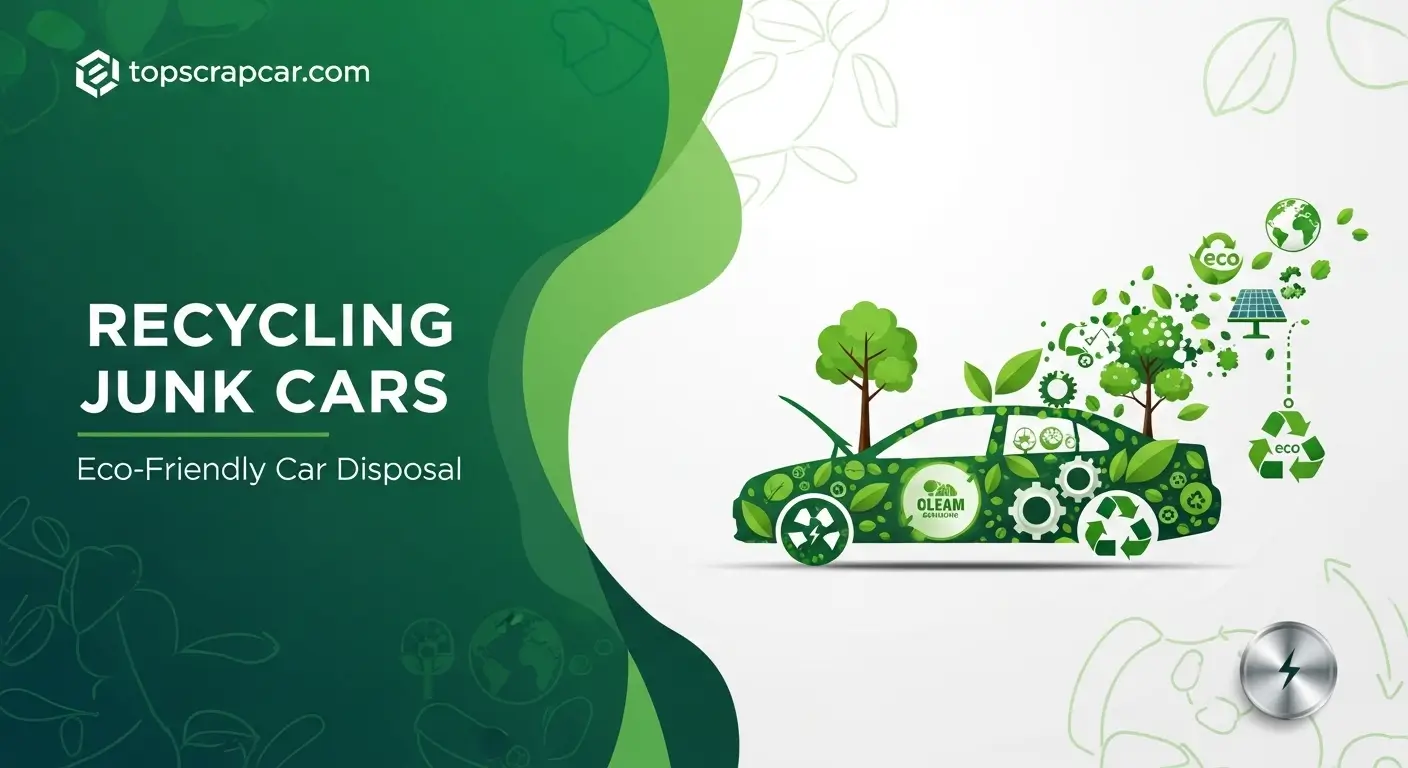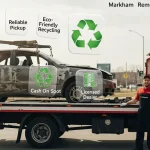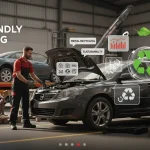
Environmental Impact of Recycling Junk Cars
In today’s world, environmental conservation is more crucial than ever. While many people think of recycling household waste, one often overlooked area is junk car recycling. Old, unused vehicles may seem harmless sitting in a yard or junkyard, but they can have a significant negative impact on the environment if not disposed of properly.
Recycling junk cars not only reduces environmental pollution but also conserves resources, reduces greenhouse gas emissions, and supports local economies. This article explores the many ways recycling old cars benefits our planet.
Reducing Landfill Waste
One of the most immediate benefits of recycling junk cars is the reduction of waste in landfills. Old vehicles contain thousands of pounds of metals, plastics, rubber, and glass. When these cars are left to deteriorate, they occupy valuable landfill space.
By recycling:
- Steel, aluminum, and copper are recovered and reused.
- Plastics and rubber components are repurposed or converted into energy.
- Hazardous components, such as batteries and fluids, are properly processed.
This process significantly decreases the volume of waste sent to landfills, keeping the environment cleaner and safer.
Preventing Soil and Water Contamination
Junk cars can pose serious risks to soil and water if left to decompose. Fluids such as motor oil, coolant, brake fluid, and transmission fluid can leak into the ground, contaminating soil and groundwater. These substances contain toxic chemicals that threaten ecosystems and human health.
Proper recycling ensures that:
- Hazardous fluids are safely drained and treated.
- Toxic components are disposed of in environmentally friendly ways.
- Soil and water contamination is minimized, protecting nearby communities.
Discover Our Services
Conserving Natural Resources
Recycling junk cars reduces the demand for raw materials like steel, aluminum, and copper. Extracting and processing these materials from the earth consumes large amounts of energy and can cause environmental degradation, including habitat destruction and pollution.
By reusing metals and materials from old vehicles:
- Energy consumption is significantly lowered.
- Mining operations are reduced, preserving natural landscapes.
- Valuable resources are conserved for future generations.
In fact, recycling a single car can recover more than 2,000 pounds of steel alone, which is enough to build new products without additional mining.
Reducing Greenhouse Gas Emissions
Producing new metals from raw materials requires high-energy processes that emit greenhouse gases (GHGs) contributing to climate change. Recycling metals from junk cars uses far less energy, resulting in lower carbon emissions.
For example:
- Recycling steel uses 75% less energy than producing it from iron ore.
- Aluminum recycling saves up to 95% of the energy required for new aluminum production.
- Lower energy consumption translates to fewer carbon emissions and a smaller carbon footprint.
By choosing recycling over disposal or new production, junk car recycling directly helps in the fight against climate change.
Supporting the Economy
Beyond environmental benefits, junk car recycling also has a positive economic impact:
- Recycling facilities create jobs in collection, dismantling, and processing.
- Recovered metals and parts enter manufacturing, creating economic value.
- Local communities benefit from sustainable practices that turn waste into revenue.
In this way, recycling junk cars promotes not only environmental responsibility but also economic growth.
How to Recycle Your Junk Car Responsibly
If you’re wondering how to contribute, here’s how to recycle a junk car properly:
- Choose a certified auto recycler: Look for facilities that follow EPA regulations and environmentally responsible practices.
- Remove hazardous materials: Ensure fluids, batteries, and tires are safely extracted.
- Salvage reusable parts: Many car components like engines, transmissions, and electronics can be resold or repurposed.
- Recycle metals and plastics: Certified facilities will melt down metals and repurpose plastics for new products.
By following these steps, you can make sure your old car benefits the environment instead of harming it.
FAQs about Environmental Impact of Recycling Junk Cars
Why is recycling junk cars important for the environment?
Recycling junk cars prevents hazardous fluids from contaminating soil and water, reduces landfill waste, conserves natural resources, and lowers greenhouse gas emissions. It ensures that materials like steel, aluminum, and copper are reused instead of extracted anew.
What materials can be recovered from junk cars?
Junk cars contain valuable metals such as steel, aluminum, and copper, along with plastics, rubber, and glass. Many parts, like engines, transmissions, and batteries, can also be reused or recycled, reducing the need for new raw materials.
How does recycling junk cars reduce greenhouse gas emissions?
Producing metals from recycled materials consumes significantly less energy than creating them from raw ores. For example, recycling steel uses about 75% less energy, resulting in fewer carbon emissions and a smaller overall carbon footprint.
Can recycling junk cars help the economy?
Yes. The recycling industry creates jobs in collection, dismantling, and processing of vehicles. Recovered materials are sold to manufacturers, generating revenue and supporting sustainable business practices.
How can I responsibly recycle my junk car?
Choose a certified auto recycler that follows environmental regulations, remove hazardous fluids, salvage reusable parts, and ensure metals and plastics are properly recycled. This ensures your car contributes positively to the environment.
Conclusion
In conclusion, Recycling junk cars has a profound environmental impact. It reduces landfill waste, prevents soil and water contamination, conserves natural resources, lowers greenhouse gas emissions, and supports local economies. Every car recycled represents a step toward a cleaner, greener future.
If you have an old car sitting unused, don’t let it pollute the environment. Consider recycling it responsibly and contributing to a sustainable future.








